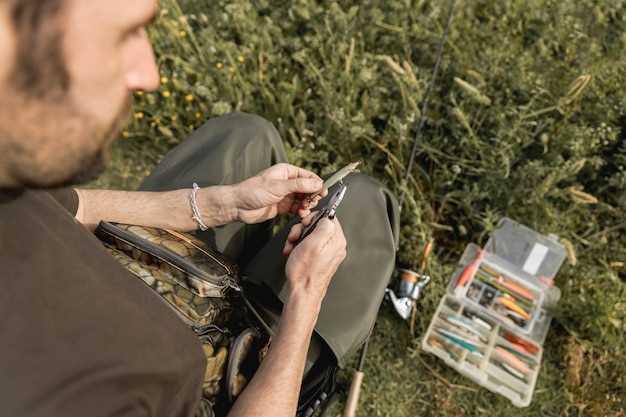
How to stay scent-free while hunting

For hunters, mastering the art of remaining scent-free is crucial for a successful outing. Wild game possesses an incredible sense of smell, and even the faintest human scent can lead to missed opportunities. To enhance your hunting experience, implementing effective scent control strategies is essential. This article provides practical tips that can significantly improve your chances of success in the field.
Understanding the Importance of Scent Control is the foundation of any effective hunting strategy. As hunters, we must recognize that our natural odors can alert animals before we even come close. By utilizing scent-free techniques, hunters can effectively mask their presence, allowing them to approach wildlife undetected.
In this guide, we will explore various tips for managing scent, from pre-hunt preparations to the best practices during your hunt. Whether you are a seasoned veteran or a novice, mastering these scent control techniques will enhance your hunting experience and improve your chances of a successful harvest.
Pre-Hunt Preparation: Eliminating Personal Odors

Effective hunting requires careful preparation, especially when it comes to controlling personal odors that can alert game animals. Here are some essential tips to help you eliminate unwanted scents before heading out into the field.
- Personal Hygiene:
- Shower using scent-free soap and shampoo to remove body odors.
- Avoid scented deodorants, lotions, or perfumes, as these can linger on your skin.
- Clothing Preparation:
- Wear clean, scent-free clothes. Launder them with unscented detergent.
- Store hunting clothes in a scent-free container, such as a sealable bag.
- Footwear Control:
- Clean your boots thoroughly to eliminate previous odors.
- Use scent-free boot sprays or powders to further neutralize smells.
- Diet Adjustment:
- Avoid strong-smelling foods like garlic and onions before your hunting trip, as they can transfer odors to your body.
- Stick to light, scent-neutral meals on the day before your hunt.
- Environmental Awareness:
- Utilize natural cover scents, such as earth or pine, to mask personal odors while on the move.
- Consider using scent-free products for gear, including hunting backpacks and equipment.
By implementing these strategies, hunters can significantly minimize their personal odors and increase their chances of a successful hunt. Attention to detail in pre-hunt preparation is essential for maintaining control over scents while in the field.
Field Techniques for Maintaining a Scent-Free Environment

Maintaining a scent-free environment is crucial for successful hunting, as game animals rely heavily on their sense of smell. Implementing effective field techniques can help control your scent and increase your chances of a successful hunt. Here are some essential tips to consider:
1. Pre-Hunt Preparation: Before heading out, take a shower using unscented soap and shampoo. This reduces body odors that could be detected by animals. Avoid using scented lotions, deodorants, or perfumes. Wear clothing that has been washed with scent-free detergent and stored in a scent-proof bag.
2. Use Wind to Your Advantage: Always be aware of the wind direction when hunting. Position yourself downwind from your target to minimize scent detection. Understanding wind patterns in the area can significantly enhance your control over how your scent travels.
3. Natural Cover: Utilize natural cover such as trees, bushes, and terrain features to help mask your scent. Moving through areas with strong scents, like evergreen trees or damp earth, can help neutralize your own odor.
4. Scent-Control Products: Consider using scent-eliminating sprays and odor-blocking clothing designed specifically for hunting. These products can aid in reducing human scent, making it harder for animals to detect you.
5. Minimize Movement and Noise: Sudden or excessive movement can not only alert animals visually but also generate odors from sweat. Stay calm and make deliberate movements, while also avoiding noisy equipment that may attract attention.
6. Control Fragrance from Food: If you plan to eat in the field, choose scent-free or minimally scented snacks. Avoid foods with strong odors that can linger in your gear and clothing.
7. Post-Hunt Procedures: After returning from a hunt, store your gear in a scent-proof container and wash clothes used during the hunt separately to remove lingering odors. This practice ensures that you are ready for the next outing without lingering scents affecting your success.
By implementing these field techniques, hunters can significantly improve their ability to remain undetected and enhance their overall hunting experience. Mastering scent control is a key element in the art of hunting.
Post-Hunt Practices to Reduce Scent Transfer
After a successful hunt, it is crucial to implement strategies that help control scent transfer to maintain effectiveness for future outings. Regardless of the terrain or weather conditions, these post-hunt practices can make a significant difference in minimizing scent.
1. Clean Your Gear: Begin by thoroughly cleaning all hunting gear, including clothing, boots, and equipment. This helps remove any residual odors that might attract unwanted attention. Utilize scent-free soaps and detergents when washing to ensure that no lingering scents remain.
2. Maintain Proper Storage: Store your hunting clothing in a dedicated, scent-free environment. Use airtight containers or vacuum-sealed bags to prevent the absorption of odors from the surrounding area. Consider adding activated carbon bags to absorb any potential scents during storage.
3. Shower with Scent-Free Products: After the hunt, take a shower using only scent-free shampoo, soap, and deodorant. This practice not only cleanses your skin but also significantly reduces any human scent that can linger post-hunt.
4. Control Your Vehicle’s Scent: Ensure that your vehicle is free from strong odors by regularly cleaning it and keeping it clutter-free. Avoid using air fresheners or other scented products inside the vehicle to prevent scent transfer to your gear after hunting.
5. Avoid Touching Non-Scent-Free Surfaces: Be mindful of the surfaces you come into contact with after your hunt. Handling items that are not scent-free can transfer unwanted odors to your gear. If possible, keep your hunting items separate from everyday life items.
6. Rinse Off Immediately: If you have access to water, rinse off immediately after the hunt. This quick action helps to remove any hunting-related scents before they settle in or transfer to your clothing and equipment.
Implementing these tips effectively can greatly help control scent transfer and maintain your stealth in the woods, ensuring a better chance of success on future hunts.



